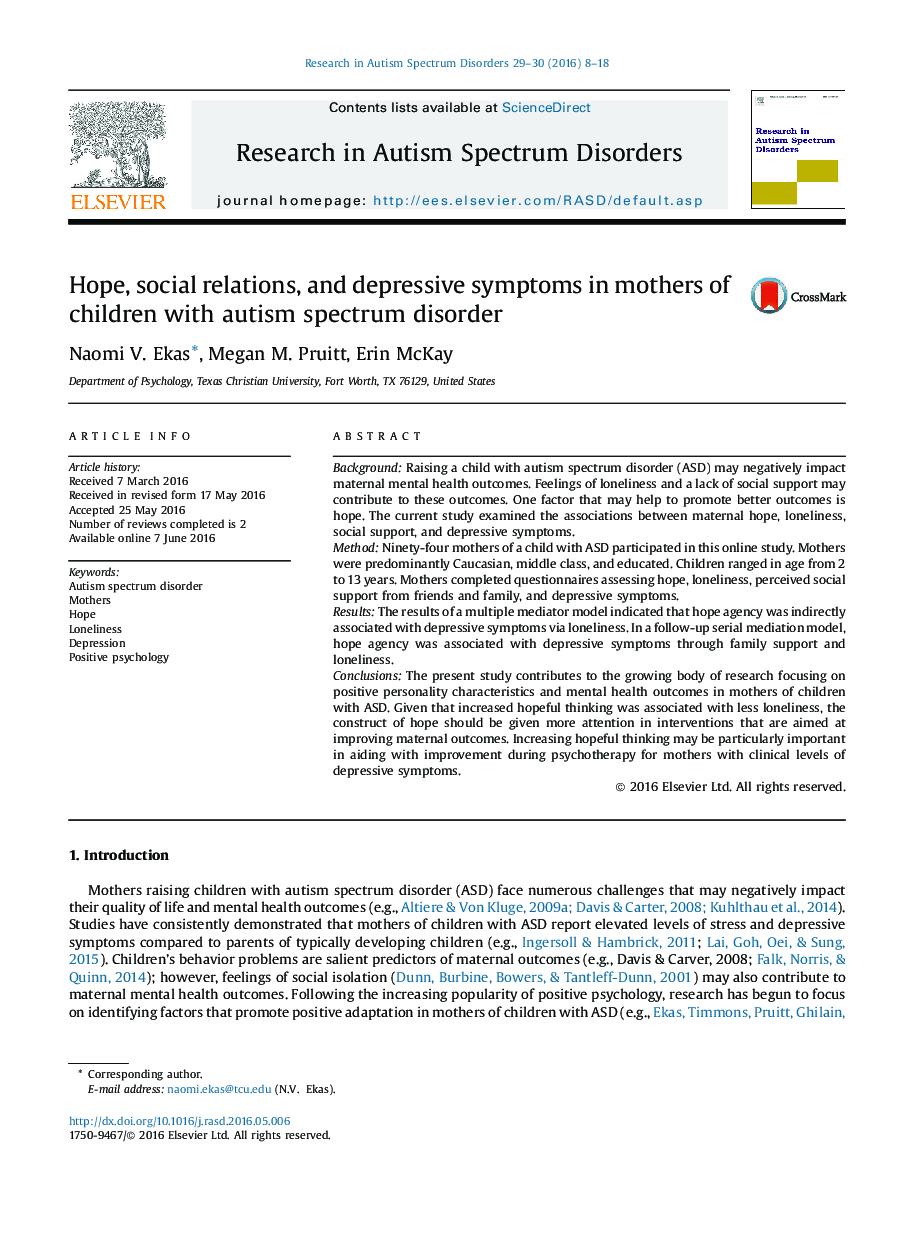| Article ID | Journal | Published Year | Pages | File Type |
|---|---|---|---|---|
| 369902 | Research in Autism Spectrum Disorders | 2016 | 11 Pages |
•Hopeful thinking was associated with decreased loneliness and depressive symptoms and increased social support among mothers of children with autism spectrum disorder.•In a mediation model, hope was associated with decreased loneliness which, in turn, was associated with less depressive symptoms.•In a serial mediation model, hope was associated with depressive symptoms via family support and loneliness.
BackgroundRaising a child with autism spectrum disorder (ASD) may negatively impact maternal mental health outcomes. Feelings of loneliness and a lack of social support may contribute to these outcomes. One factor that may help to promote better outcomes is hope. The current study examined the associations between maternal hope, loneliness, social support, and depressive symptoms.MethodNinety-four mothers of a child with ASD participated in this online study. Mothers were predominantly Caucasian, middle class, and educated. Children ranged in age from 2 to 13 years. Mothers completed questionnaires assessing hope, loneliness, perceived social support from friends and family, and depressive symptoms.ResultsThe results of a multiple mediator model indicated that hope agency was indirectly associated with depressive symptoms via loneliness. In a follow-up serial mediation model, hope agency was associated with depressive symptoms through family support and loneliness.ConclusionsThe present study contributes to the growing body of research focusing on positive personality characteristics and mental health outcomes in mothers of children with ASD. Given that increased hopeful thinking was associated with less loneliness, the construct of hope should be given more attention in interventions that are aimed at improving maternal outcomes. Increasing hopeful thinking may be particularly important in aiding with improvement during psychotherapy for mothers with clinical levels of depressive symptoms.
